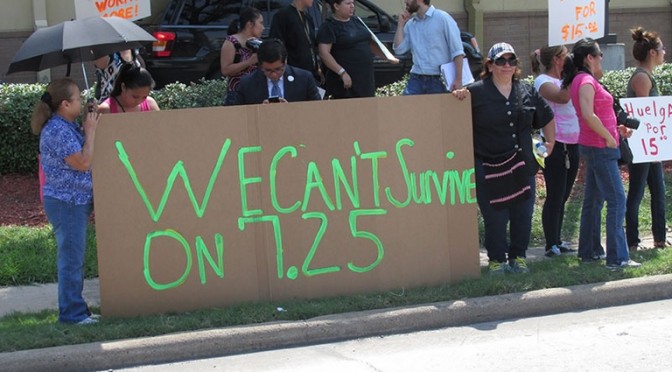On May 15, after months of relative quiet, fast food workers in 150 American cities will again go on strike. Once … Continue Reading ››
Mega May Day: Global Fast Food Strike
Though International Workers' Day technically falls on the 1st of May each year (May Day), the biggest developments appear to be happening two weeks later. From msnbc.com, here's what's occurring around the world today...
